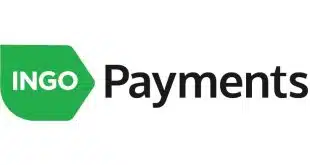As developers of applications for smart phone-based payments and incentives map their plans for what promises to be a breakthrough year in mobile financial services, evidence continues to pile up that they will have to reckon with a market split between three main operating systems. “The race for the lead in U.S. smart phone operating system (OS) consumer market share is tighter than it has ever been,” says The Nielsen Co. in a blog posting this week unveiling new data.
That’s chiefly because of the rapid rise of Google Inc.’s Android OS. While it scarcely registered a year ago, Android is now the leading choice among recent buyers of smart phones, according to Nielsen’s latest numbers. As of November, some 40.8% of U.S. adults who had bought a smart phone within the preceding six months opted for an Android model. By contrast, the corresponding shares for Apple Inc.’s iOS (the brains inside the iPhone and iPad, for example) and Research in Motion’s BlackBerry system were 26.9% and 19.2%, respectively.
That represents a dramatic shift from the situation as recently as June, when Android’s share among recent buyers was 27.5%, the New York City-based consumer-tracking company says. That month, BlackBerry ranked on top with 35% and Apple registered at 20.9%. Nielsen’s data indicate Android dethroned BlackBerry in July and has held the lead since, while Apple has bumped along at a steady share at or near 26%.
Still, the battle for dominance in smart phone operating systems remainsl undecided, leaving developers of payments apps little choice but to take all three contenders into account. Indeed, when considering market share among all U.S. owners of smart phones (not just recent buyers), the contenders are in a statistical dead heat, Nielsen says. Apple’s OS holds a precarious lead at 28.6% according to the November numbers, with RIM coming in at 26.1% and Android at 25.8%.
As recently as June, RIM led by a wide margin in overall share, with almost 34% to Apple’s 27.9% and Android’s 15%. In other words, Android’s surging popularity among recent phone buyers has created a very tight three-way race. “Apple’s clear lead over Android notwithstanding, this race might still be too close to call,” notes the Nielsen blog.
Nielsen's results were underscored on Thursday by survey data from Chicago-based market researcher comScore Inc. that showed the Android platform overtaking Apple's OS for the first time. Google's operating system was used by 26% of smart phone subscribers in the three-month period ending in November, comScore says, compared to 25% for Apple. That's a gain of 6.4 percentage points of share for Android over the three months ended in August, the firm says.
All three major platforms, Nielsen says, have been buoyed by a strong market for smart phones. Nearly one-third of all mobile-phone users owned a smart phone in November, up from 24% in June, according to Nielsen. But among those who had bought a mobile phone in the preceding six months, the smart phone share is 45%, compared to 34% in June. ComScore reports 61.5 mllion people owned smart phones over the three months through November, up 10% from the three months ended in August.







